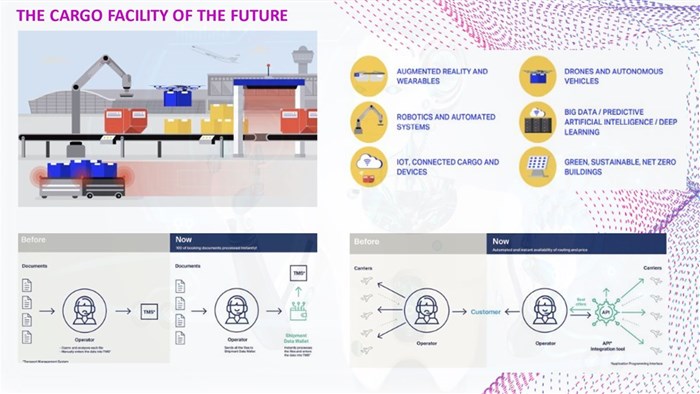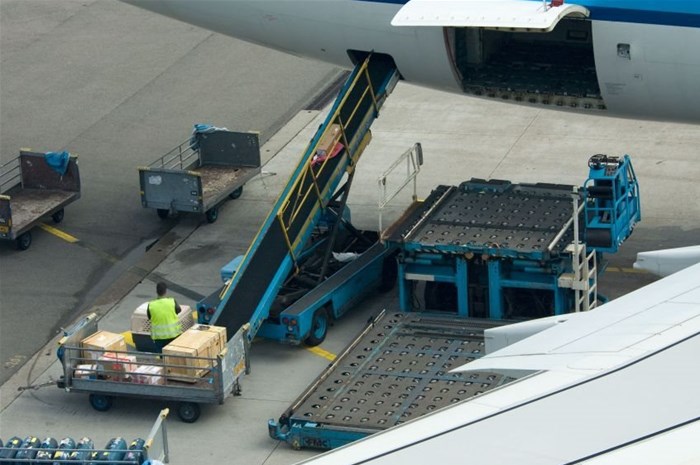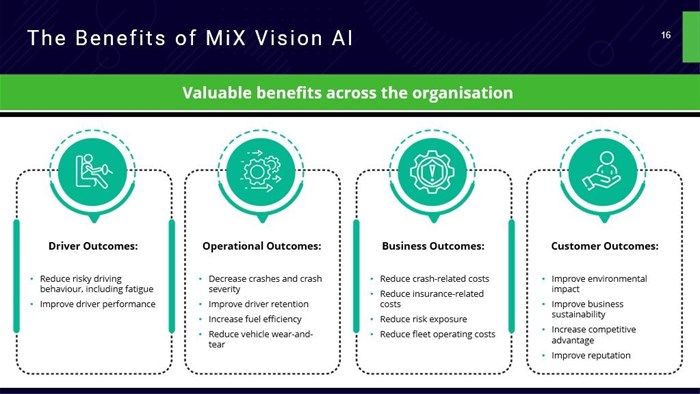
Related
Top stories






Marketing & MediaBehind the campaign: Reframing fairness in ride-hailing: The inDrive success story
inDrive 3 days
More news


ESG & Sustainability
#AGES2026: How to back Africa's next-gen green and blue entrepreneurs
















The programme included:
• Increasing connectivity and the movement of air cargo across the region by Dr Joachim Vermooten – Owner: Vermooten and Associates
• What is needed for AfCFA to work and what is the impact of AfCFTA on the supply chain? by Devlyn Naidoo – executive: Sars and Other Government Agencies (OGAs): the SA Association of Freight Forwarders
• Potential and possibilities on the Continent: Airlink Cargo’s perspective by Hardus Kuschke – executive manager, cargo: Airlink Cargo
• Data Driven Decisions Enabled by Digital Transformation by Munya Husvu, CEO: ISB Optimus
• The role technology will be playing within the African cargo space in the next decade vs. the African unemployment challenge by Gerhard van Zyl – AsimoTech
• Video telematics and the use of Artificial Intelligence by Divan Delport – sales director - MiX Telematics East Africa
• Trade opportunities in Africa for South African business by Thina Nodada – director: Waymaker Trade Solutions
• Changes to Dangerous Goods Regulations for Air Cargo by Elliot Molemi – general manager, compliance: Professional Aviation Services
"AfCTA creates a new basis on which African air transport liberalisation can be based, with the objective of creating an internal integrated air transport market, instead of a small step “piecemeal” approach based on arrangements between individual States.”
"The African Continental Free Trade Area (AfCTA) provides a new opportunity to re-start African air transport liberalisation with the objective to actually achieve a truly internal single African air transport market. This is in contrast to the current Single African Air Transport Market (SAATM), which only seeks to implement the Yamoussoukro Declaration of 1988 (35 years ago) still based on Bi-lateral Air Service Agreements (BASAs) between States, of which the implementation is inadequate."
"There is endless potential for growth in Africa – due to the increase in demand. Aviation traffic is predicted to more than double by 2037. The boom in the movement of cargo will accelerate development. Cargo yields are declining at the moment, but are still higher than pre-Covid levels."
"There is endless potential for growth in Africa:
1. There are freighter operations to main hubs, but there is a need for connectivity to smaller hubs.
2. E-commerce is underdeveloped.
3. Africa’s annual economic growth remains strong.
4. The need for bonded transport continues to grow."
"There are however some limitations:
1. Frustrations: Support functions from an airline's perspective, like reliable port and rail infrastructure for jet fuel.
2. Challenges: Inconsistent authorities, border control processes, corruption and competitiveness. Some IT systems are incapable of integration.
3. Security: Security standards are poor in some countries."
"What is required for AfCFTA to work and how do we make it work?
1. Overcoming supply-side constraints to boost African trade.
2. Closing the infrastructure deficit to boost AfCFTA’s development impact.
3. Eliminating non-tariff barriers to increase cross-border trade.
4. Establish inter-governmental international trade department support.”
"Equally important to the elimination of tariff barriers (Free Trade Area) is the elimination of non-tariff barriers and the creation of an intact continental logistics network to support the growth of intra-Africa trade."
"Supply chains are dependent on an efficient logistics network. This includes, inter alia, efficient port infrastructure, road and rail networks, a secure and safe trading environment and efficient customs and other government agency compliance processes and procedures."
"Skills development and capacity building for a young supply chain are key."

"We see a world where every employee will work side by side with digital workers. When human and digital workers work side by side, amazing things happen! It creates a world of endless possibilities!"
"To be a digital enterprise, you need digitised processes - and a digital workforce that complements your human workforce. 'Complement' is an important word, because, despite concerns about AI, automation, and Robotic Process Automation (RPA) eliminating jobs, we believe very strongly that digital workers should complement the strengths of people."
"Digital workers transcend RPA: Their core attributes are bots that are intelligent, using AI to learn and improve over time; they use analytics to ensure that their work is effective; and finally, they are capable of discovering processes that can benefit from their help.
"People’s core attributes feature creativity, connecting dots, building strong relationships, and having empathy and compassion for others. For people, this manifests in driving strong customer engagement and identifying opportunities, whether that be a new sales opportunity or business model. We also strive at problem-solving -arguably one of our best skills."
"On the one hand, we face the African unemployment challenge. The unemployment rate in Africa (estimated) 2022 was estimated at 8%, which means 41,9 million are without work.
"On the other hand, we perceive the opportunities available through technology-led productivity. Since we compete with the rest of the world, we need to keep abreast of global developments in areas such as autonomous vehicles (drones), Artificial Intelligence, augmented reality, object and image recognition and other breakthroughs.
"Thus, our logistics industry needs to maintain a balance between people skills and automation in the workplace. This calls for a commitment to a spectrum of skills development that fuses traditional methods with innovation and even quantum-leaps."
"By lowering standards of education, we are not doing our youth any favours."

"Artificial Intelligence (AI) in video telematics has transformed the way we manage and monitor vehicle fleets by improving safety, enhancing efficiency, reducing costs, and providing real-time insights. AI-powered systems can monitor driver behaviour, optimise routes, reduce idle time, and improve productivity.
"This technology provides real-time insights into driver behaviour and vehicle performance, enabling fleet managers to respond quickly to issues as they arise. As the technology advances, we can expect even more benefits and applications in the future."
“South Africa could position itself as a brains-trust country for skills development across the rest of the continent as momentum picks up for the realisation of trade under the AfCFTA.”
"What we’ve seen is that there is a strong emphasis on skills and knowledge development from African countries to partner with South Africa in achieving these aims. “If South Africa got its act together, a lot of goodwill could be invested through the transference of goods, services, skills and knowledge needed to achieve AfCFTA’s aim of boosting trade across the continent by at least 52.3%. It would take a bit of a mind-shift though, as South Africa still sees itself in different terms in relation to the rest of the continent."
“We must stop thinking of ourselves as the gateway to the continent. We aren’t the gateway to Africa, never have been, and never will be. What we can be is an enabler of trade improvement.”

"The new dangerous goods regulations have undergone a rigorous Carcom (Civil Aviation Regulations Committee) process and are awaiting the Transport’s Minister signature. The express parcel industry has over the years seen the introduction of drop-off facilities, enabling customers to drop off parcels, with little inconvenience. Examples of these facilities include Aramex’s Drop Box, Courier Guy’s PUDO and DSV’s Locker, which are stationed at shopping complexes and filling stations.
"These products of convenience have come with their own problems. Customers are likely to include hazardous items like lithium batteries, corrosives and flammable liquids - out of ignorance. The SACAA has come up with a set of regulations that seeks to minimise such incidents. The regulations when summarised will require a company offering parcel drop-off facilities to educate their users on the dangerous goods.
"This will be done by:
• Requiring that the user declares if their package contains dangerous goods or not.
• Providing information about dangerous goods to the user through the website or other electronic forms.
• Displaying dangerous goods prohibition messages and other signages at drop-off facilities.
"These regulations extend to other courier products at shopping malls like Postnet and Pepkor’s Paxi - if their parcels end up in an aircraft."